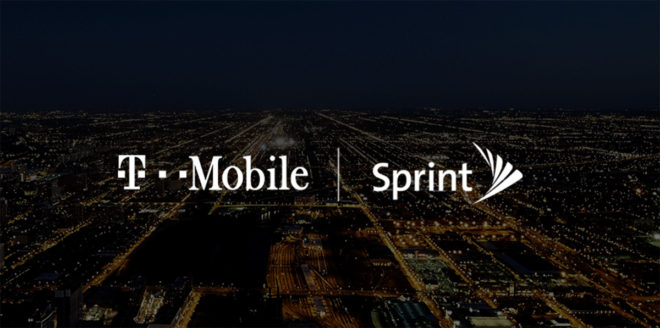T-Mobile and Sprint merger deal official

After multiple rumors and leaks this month, T-Mobile and Sprint today confirmed that they’ve entered into a merger agreement.
According to the announcement that was just made, the combined company will simply be known as T-Mobile and will be headquartered at T-Mo’s current HQ in Bellevue, WA, with a second headquarters in Overland Park, KS, where Sprint is headquartered. T-Mobile parent company Deutsche Telekom will hold 42 percent ownership of the combined company while Sprint majority owner SoftBank will hold 27 percent. The remaining 31 percent will be held by the public.
T-Mobile CEO John Legere will serve as the CEO of the new T-Mobile while T-Mo COO Mike Sievert will be the President and COO of the combined T-Mobile-Sprint. Deutsche Telekom CEO Tim Höttges will be Chairman of the Board of the new T-Mobile, while SoftBank CEO Masayoshi Son and Sprint CEO Marcelo Claure will serve on the board.
The all-stock deal has a fixed exchange ratio of 0.10256 T-Mobile shares for each Sprint share. A report from Bloomberg notes that the deal is worth $26.5 billion and that there is no breakup fee attached to the deal.
This T-Mobile-Sprint merger is subject to closing conditions and regulatory approvals. The deal is expected to close no later than the first half of 2019.
T-Mobile and Sprint are using 5G to push their merger, even launching a 5GForAll.com website. “The new company will be able to light up a broad and deep 5G network faster than either company could separately,” the announcement claims. Using Sprint’s 2.5GHz spectrum, T-Mobile’s 600MHz airwaves, and other assets, the two companies claim that they’ll be able to create “the highest capacity mobile network in U.S. history” that, compared to T-Mobile’s current network, is expected to offer 15 times faster speeds on average nationwide by 2024.
The two companies also say that their merger will be good for U.S. job growth. The combined T-Mobile-Sprint will employ more than 200,000 people out of the gate, and the new T-Mobile intends to invest up to $40 billion in its network and business in the first three years. “This combination will also force AT&T, Charter, Comcast, Verizon, and others to make investments of their own to compete, driving billions more in accelerated investment,” the companies say.
T-Mobile also points to its acquisition of MetroPCS five years ago in support of its proposed merger with Sprint, saying that its MetroPCS acquisition brought “substantial job growth.” Three times the number of people work at MetroPCS now than there were working there when T-Mo acquired Metro in 2013.
T-Mobile and Sprint also say that their merger will create more competition. One of the major arguments against the merger will be that it’ll reduce the number of major U.S. carriers from 4 to 3, which will result in less competition and higher prices. T-Mo and Sprint don’t see it that way, though.
“This isn’t a case of going from 4 to 3 wireless companies – there are now at least 7 or 8 big competitors in this converging market. And in 5G, we’ll go from 0 to 1. Only the New T-Mobile will have the capacity to deliver real, nationwide 5G,” said T-Mobile CEO John Legere. “We’re confident that, once regulators see the compelling benefits, they’ll agree this is the right move at the right time for consumers and the country.”

As I mentioned before, this deal will be subject to regulatory approval before it can actually move forward. There was some skepticism of last year’s attempted T-Mobile-Sprint merger, with one report saying that the U.S. Justice Department’s career staff would’ve recommended that the deal be halted. It remains to be seen how the current administration will respond to this deal, though.
Much of the arguments against this proposed merger will focus on how a combined T-Mobile-Sprint will result in a reduced number of major U.S. carriers, which could mean less competition and higher prices for consumers. T-Mo and Sprint know this, which is why Legere says that there are actually “at least 7 or 8 big competitors in this converging market”, like Comcast and Charter. T-Mobile has helped to make some big changes to the U.S. wireless industry in recent years with its Un-carrier moves, and there will be many concerns that this competitiveness will lessen without Sprint to push T-Mo.
Whatever happens with regulators this time around, the process is sure to take some time. What do you make of this news? Do you think that regulators will allow T-Mobile and Sprint to merge?
Sources: T-Mobile, Sprint, 5GForAll.com
